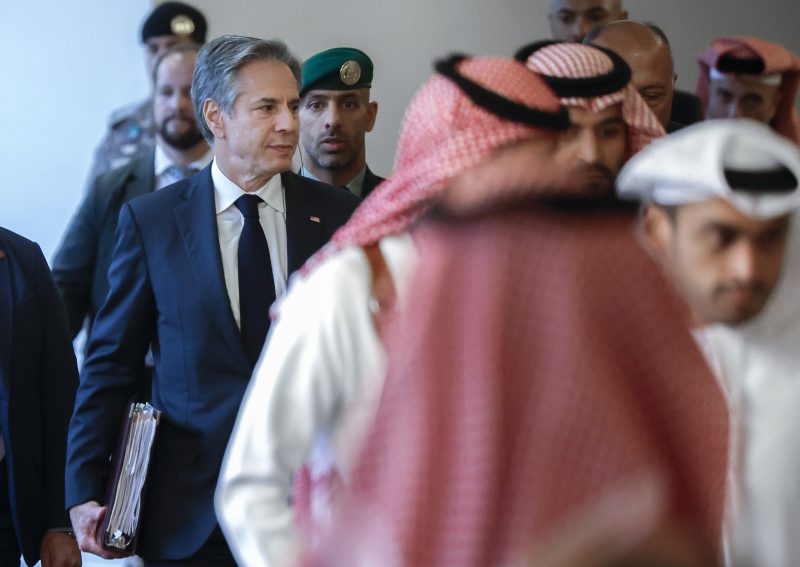In a region marred by conflicts and unrest, the lingering aftermath of the Gaza war has once again thrust international attention towards the Middle East. The United States is taking the lead in formulating a postwar plan for Gaza, aiming to provide much-needed relief and stability to the war-torn region. However, Arab states, traditionally key players in Middle Eastern affairs, have been noticeably reticent in their response to the US initiative.
The reluctance of Arab states to actively engage in the postwar plan for Gaza can be attributed to several factors. One significant factor is the historical and complex dynamics that shape the relationships between Arab states and the US. While many Arab countries have diplomatic ties with the US, the level of cooperation often varies depending on the issue at hand. In the case of Gaza, Arab states may be hesitant to fully endorse a US-led initiative, especially given the long-standing tensions and disagreements over US foreign policy in the region.
Additionally, Arab states may be wary of being seen as aligning too closely with the US, particularly in light of the ongoing Palestinian-Israeli conflict. The conflict has deep-rooted political, religious, and humanitarian dimensions, and Arab states have historically been vocal supporters of the Palestinian cause. By appearing too cooperative with the US in the postwar plan for Gaza, Arab states risk alienating their own populations and undermining their credibility as defenders of Palestinian rights.
Furthermore, the complexities of the postwar situation in Gaza present challenges that Arab states may be hesitant to navigate without clear guarantees and assurances. Rebuilding Gaza and addressing the humanitarian crisis require significant resources, expertise, and diplomatic coordination. Arab states may be cautious about committing to a US-led plan without a clear understanding of the roles, responsibilities, and potential outcomes for all stakeholders involved.
Despite the reticence of Arab states, the US continues to push forward with its postwar plan for Gaza, emphasizing the importance of international cooperation and assistance in rebuilding the region. The success of the plan hinges not only on the involvement of Arab states but also on broader international support and engagement. It is crucial for all stakeholders to put aside their differences and work towards a comprehensive and sustainable solution that addresses the root causes of the conflict and paves the way for long-term peace and stability in Gaza.
In conclusion, the reticence of Arab states in response to the US-led postwar plan for Gaza underscores the complex and multifaceted nature of international relations in the Middle East. While the US pushes forward with its initiative, Arab states must carefully consider their positions and priorities in the context of regional dynamics and long-standing conflicts. Ultimately, the success of the postwar plan for Gaza will depend on the collective efforts and cooperation of all stakeholders involved, including Arab states, to rebuild the region and secure a better future for its people.
